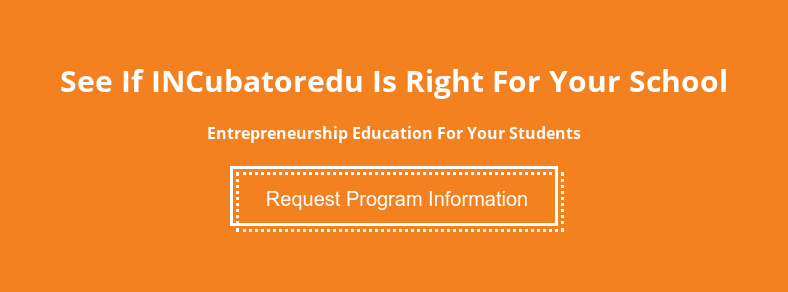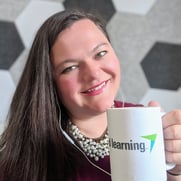 Do you have an idea that's sure to be the next 'big thing'? Maybe it's a new business, app or service. For your big idea to move forward, it's important to understand something at the start of your entrepreneurial journey—it's not all about the idea, it's about the problem.
Do you have an idea that's sure to be the next 'big thing'? Maybe it's a new business, app or service. For your big idea to move forward, it's important to understand something at the start of your entrepreneurial journey—it's not all about the idea, it's about the problem.
Jim Friedman, a professor at the Miami University John W. Altman Institute for Entrepreneurship and contributor to Uncharted Learning, said, “We have to help students become not just problem solvers, but problem finders.” What problem are you trying to solve? Is this a problem many have? Is it a problem worth solving?
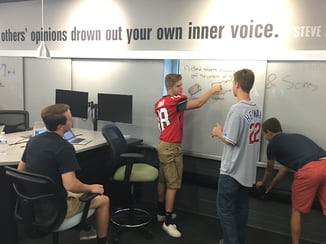 "Falling in Love with the Problem" is a decision framework from Eric Ries' global movement, The Lean Startup and The Startup Way. This methodology is at the core of the INCubatoredu curriculum.
"Falling in Love with the Problem" is a decision framework from Eric Ries' global movement, The Lean Startup and The Startup Way. This methodology is at the core of the INCubatoredu curriculum.
Every year, in high school classes all over the country, thousands of students join together in teams to identify a problem they care about — and it's that care or passion that fuels the entrepreneurial journey. This journey can result in deeper, purposeful learning — a theme that we believe is central to the future of k12 education and student preparedness. An authentic entrepreneurship experience in education is all about building the entrepreneurial capacity of students.
“We have to help students become not just problem solvers, but problem finders.”
~ Jim Friedman, a professor from The Miami University John W. Altman Institute for Entrepreneurship
The Power of the Bug List
Uncharted Learning programs empower students to acquire critical skills and knowledge, practice new behaviors, and adopt new mindsets. One of these areas involves 'discovery.' In discovery, students adopt a spirit of curiosity, creativity, imagination, innovation, optimism, problem-finding, and opportunity-seeking.
Students get out of the classroom and into the real world to actually talk with people/consumers during the problem discovery phase to best capture what bothers them (and others!) using INCubatoredu’s Bug Me Assignment, based on the concept of a 'Bug List.'
A Bug List is a continually growing list of things that bother you or bug you throughout the day, or things you wish you had that would make your life just a bit easier. Adams, Conceptual Blockbusting: A Guide to Better Ideas
Where students go to generate and validate this list is as vast as the number.png?width=235&name=2021.Prairie.Hill.Student%20(2).png) of problems; from cafeterias to shopping malls. For example, Munster High School INCubatoredu students in Indiana, visited a local hospital to observe and record problems they observed in the lobby, pre-Covid. In Virginia, INCubatoredu teams visited a county fair event to get feedback from the crowd and capture opt-in email addresses for future surveys.
of problems; from cafeterias to shopping malls. For example, Munster High School INCubatoredu students in Indiana, visited a local hospital to observe and record problems they observed in the lobby, pre-Covid. In Virginia, INCubatoredu teams visited a county fair event to get feedback from the crowd and capture opt-in email addresses for future surveys.
Friedman supports this activity, wholeheartedly, saying, “One of the greatest things INCubatoredu does is the Bug List. We need to teach students to look at what bothers people, because everything that has been created started with it bugging someone." This part of the curriculum enables a great foundation for course milestones, and nudges students outside their normal surroundings in the spirit of curiosity and innovation.
Focusing on Problems That Matter
eSchoolnews recently featured stories of INCubatoredu students from California, Illinois and New York. In these articles, it's apparent that the business startup teams' pursuits are grounded in problems. These are problems that students care about because they're personal, and in some cases national or global concerns. Here’s how the journey unfolded from the teams' identified problems:
Having 2X the Impact
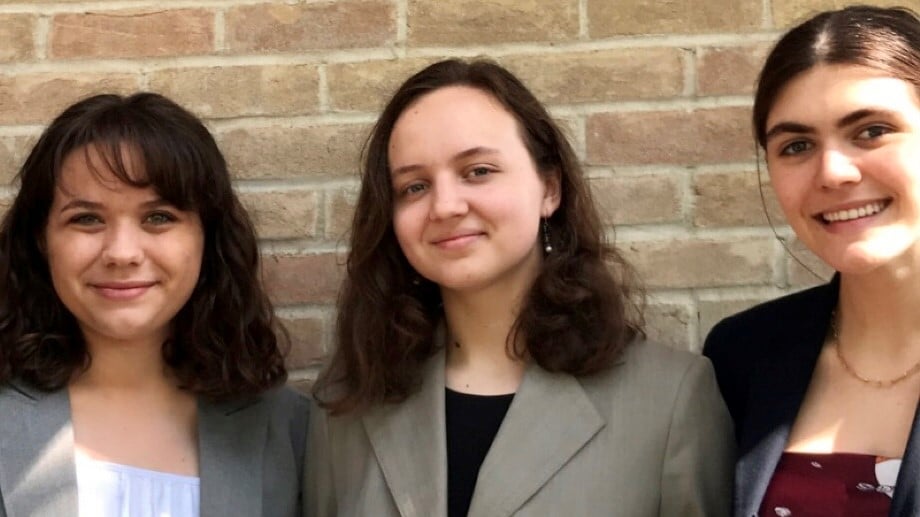
An all-women team found a way to solve two problems with one solution—a true win-win! Environmentally conscious, the team was personally aware and bothered by the pressing problem of polypropylene plastic in landfills, and the fact that only 1% is recycled every year. A very different problem facing manufacturers of 3D printers is the procurement of raw materials available to make filament. The women founded a business start-up, FYDER, that produces 3D printing filament entirely made of polypropylene plastic waste.
Researching to Get it Right
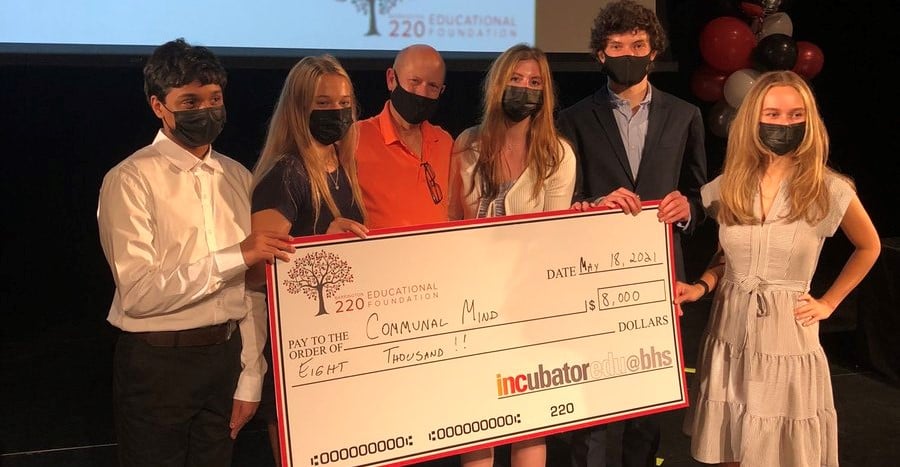
COVID-19 impacted us all in countless ways. For students, learning took on a new dynamic with remote learning and a shift in the day-to-day structure of school, activities and social lives. Students at Barrington High School were dialed into the awareness that mental health was at risk given the upheavals. They set up to prove their hypothesis with a survey and customer interviews that revealed that 100 percent of respondents knew someone suffering from mental health-related illnesses. This problem validation was all they needed to rally around mental health issues in teens. They built a social community platform called Communal Mind designed for students with mental health struggles. Communal Mind wants ‘no one to feel alone’ in their situation. Their solution provides a supportive ‘space’ for their classmates with connection access to help.
Supporting the Love for Pets
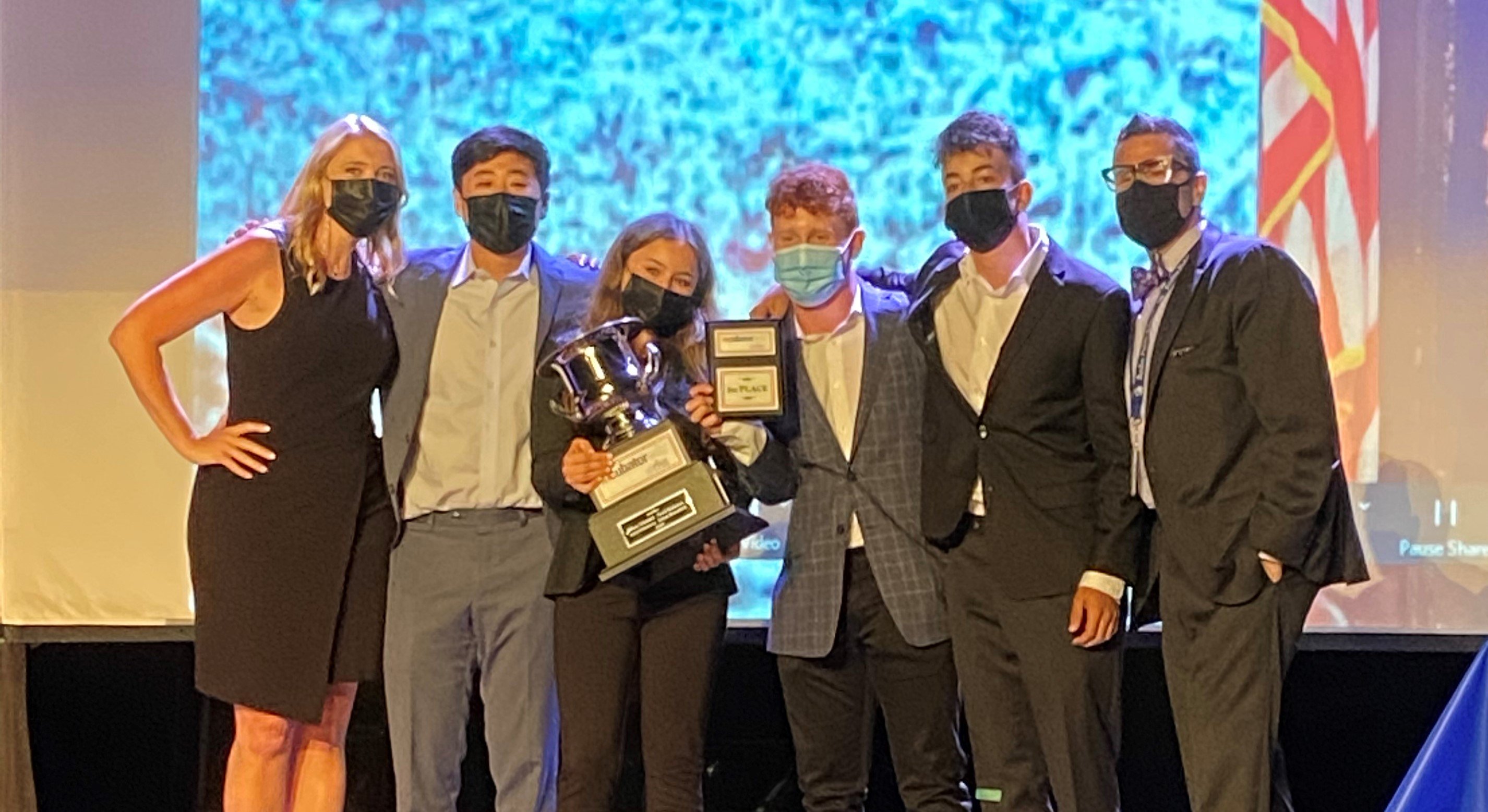 Another outcome of COVID-19 was a little brighter...new pets! During the pandemic, happy stories of ‘empty pet shelters’ peppered our newsfeeds. A student team from New York verified that not only did two-thirds of American households have a pet, but 95% consider pets part of the family! Where’s the problem with this? Pets don’t come with instruction manuals. Many new pet owners don’t know where to turn for support for everything from proper nutrition to general care. The student team developed the WellPets app to assist owners with all things pet-related, customized to their specific pet. Happy pet, happy person!
Another outcome of COVID-19 was a little brighter...new pets! During the pandemic, happy stories of ‘empty pet shelters’ peppered our newsfeeds. A student team from New York verified that not only did two-thirds of American households have a pet, but 95% consider pets part of the family! Where’s the problem with this? Pets don’t come with instruction manuals. Many new pet owners don’t know where to turn for support for everything from proper nutrition to general care. The student team developed the WellPets app to assist owners with all things pet-related, customized to their specific pet. Happy pet, happy person!
Empowering Students to be Future Ready
The talented and successful problem-solvers (and solution finders!) at FYDER, Communal Mind and Wellpets are poised to grow their startups and perhaps pursue a career in entrepreneurship. However, some teammates intend to use the entrepreneurial skills they learned as a springboard for other paths. For example:- Jason from WellPets enrolled in INCubatoredu with an exciting career already in mind. His dream is to become a sports play-by-play announcer, which he knows will require super-charged speaking and presentation skills. He'll benefit from his INCubatoredu coursework because it teaches students how to speak in front of colleagues, mentors, and potential investors, encouraging eloquence and self-confidence.
- Of the FYDER founders, one teammate hopes to continue to innovate as a biochemical engineer, and another will use her newly developed public speaking skills as an English teacher. One founder said, 'The skills we gained as part of this program will help us immensely. Collaboratively, we learned to become better problem-solvers and gained confidence and experience preparing us for both college and our dream jobs.'
"Our job as teachers is not to "prepare" kids for something; our job is to help kids learn to prepare themselves for anything.”
~ A.J. Juliani
So much of the real world and ‘adulting’ is mindfully solving problems we encounter. The skills gained through student entrepreneurship apply to ‘life’ as much as they apply to building businesses—to prepare our students to be ‘future ready’ for anything.
